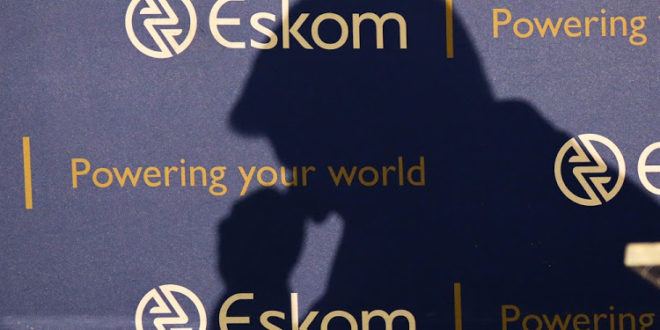The Special Tribunal on Friday froze the bank accounts of a senior Eskom manager over millions in alleged kickbacks.
The Special Investigating Unit (SIU) had launched civil proceedings against the power utility’s coal operations senior manager, Petrus Mazibuko, after a whistle-blower alerted them to R11m worth of alleged kickbacks allegedly paid to him.
Eskom confirmed they had taken “immediate steps to suspend the individual”.
SIU spokesperson Kaizer Kganyago said an interim order to freeze the account had been granted. He said the order was granted pending arguments for a final forfeiture.
“The SIU approached the Special Tribunal to freeze the funds after allegations were received from a whistle-blower that Petrus Mazibuko was receiving unauthorised gratification from two Eskom suppliers, namely Commodity Logistix Managers Africa and Thembathlo Pty Ltd, through a bank account held by Thephunokhetja Projects.
“The SIU investigated the allegations. As part of the investigation, the SIU obtained the bank statements and the account opening documents from First National Bank.
“The documents show Petrus Mazibuko and Shadrack Mazibuko, who is also cited in the court application, are the signatories to the bank account. The bank statements show the only source of income into this account is from the two Eskom suppliers,” said Kganyago.
Court grants order freezing R1.4bn in assets of former Eskom and company executives
He said the investigation uncovered no evidence that could point to a proposition that Thephunokhetja Projects rendered services or was legally entitled to claim for goods or services rendered to either Commodity Logistix Managers Africa and Thembathlo.
“There was no evidence or explanation that the funds held in Thephunokhetja Projects bank account were anything other than unauthorised gratification.”
Kganyago said the order prohibited both Petrus Mazibuko and Shadrack Mazibuko from dealing with funds held in the bank account.
He said the investigation had also revealed that Petrus Mazibuko had not obtained any written authority to do work outside his Eskom employment, or to receive any remuneration in addition to his Eskom salary.
“This is a violation of Eskom’s conflict of interest policy requiring all employees to annually disclose their interests. This evidence was referred to Eskom with the recommendation to suspend Mazibuko pending the investigation’s finalisation.”
He said the investigation stemmed from a presidential proclamation issued in 2018 to the SIU, compelling it to investigate the procurement of, or contracting for, services by Eskom and payments made in regard to these services.
“The proclamation allows the SIU to investigate allegations of corruption and maladministration in the affairs of Eskom in which the power utility company suffered financial losses that can be recovered.”
The SIU investigation is continuing, he said.
Former Transnet exec’s earnings do not add up, tribunal hears
Eskom spokesperson Sikonathi Mantshantsha confirmed the SIU’s information, saying the information was referred to them by Eskom after a whistle-blower report.
“The whistle-blower informed Eskom he had been asked for a bribe by the individual, and Eskom then referred the information to the SIU. Together they looked into the allegations and found R12m in his personal account. Following the issuing of the order, Eskom has immediately initiated steps to suspend the individual,” he said.
A former Eskom executive said corruption within the primary energy department was rife, and coal contracts were lucrative for syndicates that worked there.
Mazibuko, the source said, was in charge of operations in the department and oversaw the work of all coal contracts, and made the decision on which service providers were fined for contravening conditions of contracts.
Another source, with knowledge of the SIU’s investigation, said one modus operandi was that senior managers in Eskom would often direct coal supply contracts to companies that were far from stations in order to award logistics contracts to companies with which they had relationships.
“People in primary energy were untouchable. A lot of the focus is on exco members, but the money is [among] the senior management, who have direct access to these suppliers. They are the ones who make money, and they were protected by one or two executive members,” the source said.
TimesLIVE
 Home Of Ghana News Ghana News, Entertainment And More
Home Of Ghana News Ghana News, Entertainment And More





